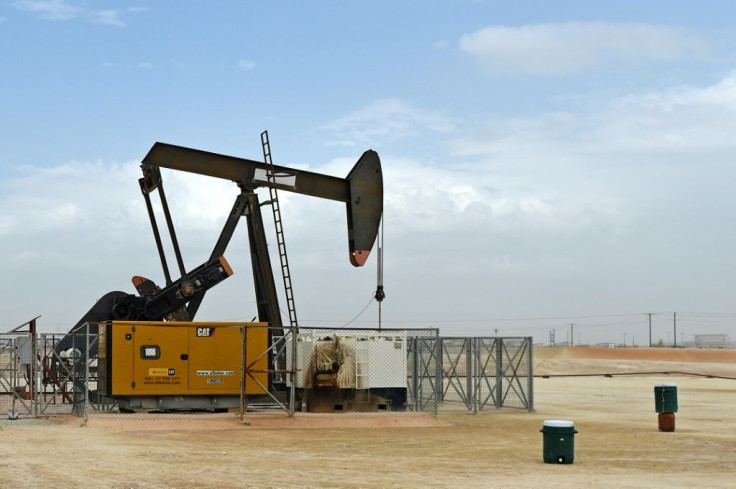U.S. Oil And Gas Industry Enduring Devastating Job Losses On Supply Glut, Low Crude Prices

KEY POINTS
- The U.S. oil and gas industry lost 51,000 drilling and refining jobs in March
- The total number of oil and gas jobs could plunge by as much as 30% in Q1 2020
- Halliburton furloughed 3,500 workers at its Houston headquarters and elsewhere
The U.S. oil and gas industry lost 51,000 drilling and refining jobs in March as unprecedented low crude prices shut down vast parts of the sector.
Including related jobs in construction, manufacturing of drilling equipment and shipping, the total loss jumps to 66,000, said research consultancy BW Research Partnership.
Last month, for example, Halliburton (HAL) furloughed 3,500 workers at its Houston headquarters and elsewhere. “This was a painful decision and I am fully aware of the difficulty this will cause our impacted employees,” Halliburton CEO Jeff Miller said. “Unfortunately, this action is necessary as Halliburton adjusts to the market.”
Last week Weatherford International (WFTIQ), the Houston-based oil-field service company, planned to cut 25% of its global workforce, or about 6,000 jobs.
Baker Hughes (BKR) laid off 234 in Oklahoma City and said it will reduce capital spending by more than 20% from 2019 figures, while writing down the value of $15 billion of assets in its first-quarter earnings.
“Baker Hughes is responding as rapidly as possible to these conditions,” said Baker Hughes Oilfield Service Human Resource Leader Holly Page. “In order to meet these rapidly changing unforeseeable business conditions, we are making the difficult business decision to reduce our staffing levels for some locations in the U.S.”
BW Research estimated that the total number of oil and gas jobs could plunge by as much as 30% in the first quarter of 2020.
“We’re looking at anywhere between five and seven years of job growth wiped out in a month,” said Philip Jordan, vice president at BW Research. “What makes it sort of scary is this really is just the beginning. April is not looking good for oil and gas.”
As the coronavirus pandemic and related lockdowns have crushed global demand, untold amounts of oil sit unwanted and unused in storage facilities nearing full capacity.
Oilfield service companies have been hit particularly bad. Every time an oil project, oil well or fracking endeavor shuts down, dozens of other workers lose their jobs.
“Oil and gas has suddenly become a hobby that only the best capitalized companies in the industry are going to be able to continue to enjoy engaging in,” said Dan Eberhart, the chief executive of oilfield services firm Canary Drilling Services of Denver, which has laid off some 200 people and enacted salary cuts. “A hefty amount of the jobs in oil and gas are provided by oilfield service companies-and those companies are weaker than the oil companies and are going to start disappearing quickly.”
Other industry voices are equally gloomy.
“The world has never come to a halt like it has in the past few weeks,” said Francisco Blanch, global head of commodities at Bank of America. “[About] 60% of oil demand comes from transportation. Gasoline sales are down more than 50%. Flights around the world are down 80% or 90%. The collapse in consumption is mobility driven. That’s what makes this crisis different than the great Depression. Producers are now being sent the harshest signal ever to react to the crisis.”
Energy is a dominant industry in the state of Louisiana, supporting 34,000 direct jobs and $3.2 billion in direct wages.
But now local advocates worry about its future.
“We’re watching an entire industry being eliminated before our eyes,” said Gifford Briggs, president of the Louisiana Oil and Gas Association. “What we’re witnessing has not happened in my lifetime and nobody’s paying attention. Alarms should be being sounded now and they aren’t happening. By the time everybody wakes up if could be over for Louisiana [oil and gas]. If the industry is going to survive we will need severance tax relief, royalty relief and an end to the government sponsored coastal lawsuits.”
© Copyright IBTimes 2025. All rights reserved.





















